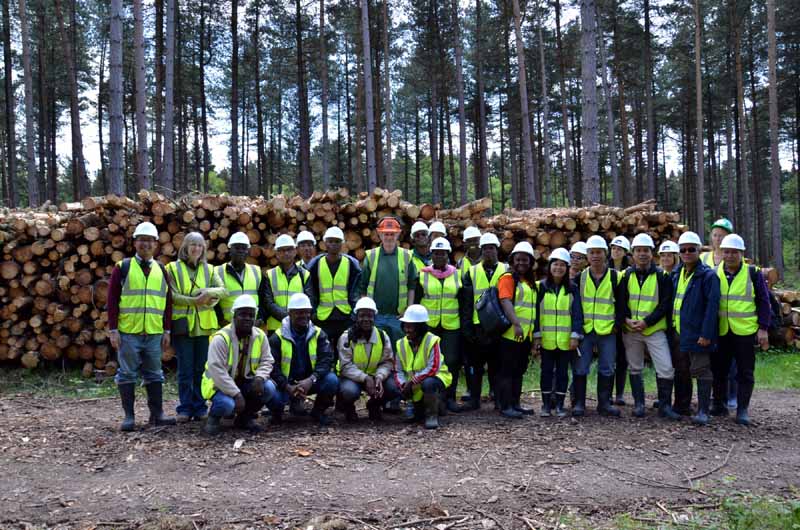A course aiming to assist the international drive to protect the world’s tree population is once again being hosted by the University of Wolverhampton.

Roger Wilson from the Forestry Commission (orange hat) with members of the “Improving Forest Governance” course delegation at Cannock Chase
The “Improving Forest Governance” course, held at the University’s Telford campus, has been organised by the Centre for International Development and Training (CIDT), a self- financing, not-for-profit centre within the University of Wolverhampton.
The six week course has been held annually since 2010 to a diverse, international audience, and this year welcomed its first guests from Myanmar and Guyana.
The course is designed to strengthen the capacity of stakeholders who are involved in negotiating Voluntary Partnership (Trade) Agreements with the European Union to create the necessary legal frameworks and monitoring systems to allow legally felled wood to be exported.
As well as University based activities, the course also includes discussions and workshops with input from key think-tanks, international nongovernmental organisations (NGOs) and consultancy organisations.
The delegates will also get the chance to participate in field trips across the region. As well as a previous visit to the Forestry Commission at Cannock Chase, the course also offers trips to the Arnold Laver Timber Company in Birmingham, Mabley Farm in Herefordshire, and Long Wood Community Woodlands in Lampeter, Wales.
Funders supporting participants this year include the UK Government’s Department for International Development, the United Nations Food and Agriculture Organisation, the European Forest Institute, the research institute CIFOR and the Worldwide Fund for Nature.
Speaking about the course, Senior Lecturer and CIDT member Jill Edbrooke said: “The relevance of this course has grown in importance due to significant new European legislation which has been introduced to protect tropical timber.
“We’re particularly excited that this year the course welcomes two participants from Myanmar, a country which due to its political isolation has, until recently, had little opportunity to develop improved forest management and governance practices.
“The course enables participants to return home with a tangible proposal or action plan, as well as the practical skills to implement these new ideas upon their return.”


